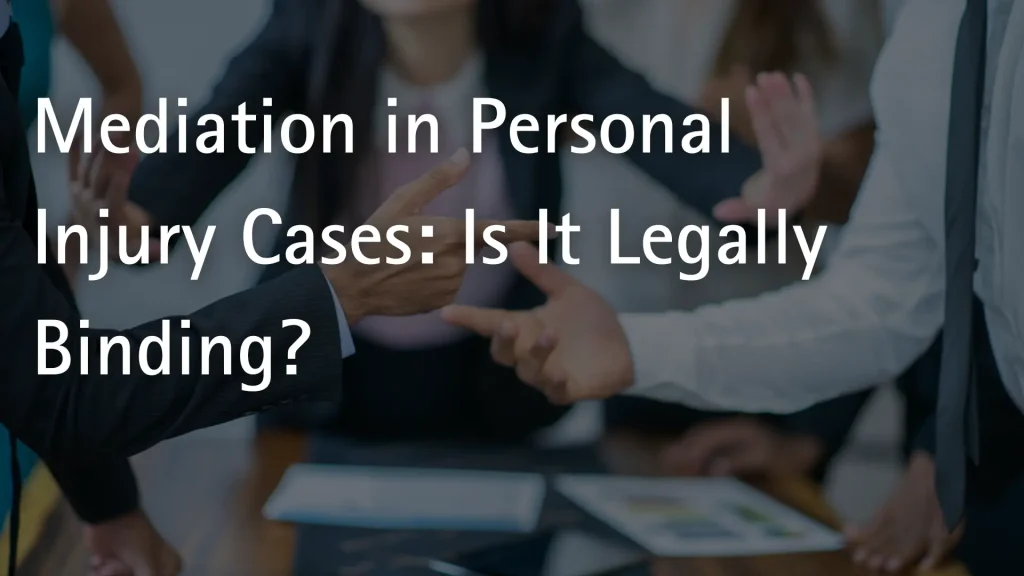
Have you ever wondered if there’s a quicker, less stressful way to resolve a personal injury claim than going to court? Mediation might be the answer you’re looking for. Suffering injuries in a personal injury accident can be a life-altering experience, and the road to recovery can be long and arduous. Your recovery may be affected by the stress of negotiating a fair settlement with the at-fault party. This is where mediation can offer a valuable alternative. If you’re asking, is mediation legally binding in a personal injury case? Can the experienced Kalispell personal injury lawyers of Travis & Brann, PLLP advise you on how mediation can help your case?
What Is Mediation in Personal Injury Cases?
Mediation is a popular way to resolve disputes in personal injury cases because it is relatively low-cost and has a high success rate. It is also quicker and less adversarial than most court proceedings. Many judges in Montana require mediation before a case goes to trial. Additionally, mediation is quicker than court proceedings, allowing for a more expedited resolution. You will only go to trial if you and the defendant cannot settle your claim during mediation.
However, despite its advantages, individuals considering mediation for their personal injury claims might wonder, is mediation legally binding in a personal injury case? The quick answer is no. A mediator does not have the power to bind the parties to a decision that they make. However, if the parties agree to a settlement and sign a lawfully enforceable settlement agreement, that agreement is a contract and is binding.
Structure of Mediation
A typical personal injury mediation session follows a structured format to facilitate productive discussions and resolution.
- Both parties agree to mediation.
- The parties agree on a mediator.
- The mediator guides the discussions and negotiations between the plaintiff and the defendant.
- The mediator helps the parties identify potential solutions.
- The parties negotiate and agree on an outcome.
- The agreement is put into writing, and the parties sign the settlement agreement.
Mediation is structured negotiation. Entering personal injury mediation without a skilled attorney will likely not yield a successful outcome for your case. Attorneys have years of experience helping people reach settlements through mediation.
Role of the Attorney During Mediation
A skilled personal injury attorney can be your ally during mediation. They can explain the process, assess the fairness of settlement offers, and advocate for your best interests. Their experience in negotiation and knowledge of personal injury law can significantly impact the outcome of your case.
Attorneys prepare their clients for mediation, present opening statements, and negotiate with the opposing party. Experienced personal injury attorneys help their clients set realistic expectations for the mediation process and advise them on communicating effectively during the session.
Our attorneys at Travis & Brann, PLLP can assist you with your personal injury case and help you during mediation. Our lawyers keep our clients informed through every stage of their cases.
Why Have Mediation During a Lawsuit?
Mediation is usually quicker and less expensive than going to trial. If one of the parties files a lawsuit, an attempt at mediation can save money for both parties.
Mediation is a voluntary, confidential process in which a mediator helps the disputing parties negotiate a mutually agreeable resolution to their legal dispute. The parties may decide to enter into mediation if they cannot reach an agreement and the case is headed for trial.
Unlike a judge or arbitrator, the mediator does not impose a decision on the parties. The mediator helps the parties identify their interests, explore potential solutions, and work toward a resolution that satisfies both sides.
Mediation is about the parties mutually agreeing to an outcome. Mediators are not judges or arbitrators. They do not make the decisions in the case. In a personal injury case, the goal is to reach a just settlement that compensates the plaintiff for their injuries without proceeding through a lengthy and costly trial.
Personal injury lawyers negotiate with the opposing party on their client’s behalf throughout mediation. They understand how mediation works, can identify insufficient offers, and can present appropriate counteroffers. They’ll counsel their clients on how best to achieve a settlement that meets their needs, and if such a settlement can’t be reached, they’ll advise their clients that it’s in their best interests to proceed to trial.
Benefits of Mediation in Personal Injury Cases
Mediation offers several distinct advantages over traditional litigation regarding resolving personal injury cases. These advantages make it an attractive option for accident victims to resolve their cases.
- Cost-Effective – Mediation eliminates court fees and requires fewer hours for the attorney to work.
- Time-Saving – Mediation is much faster than a trial, allowing the injured party to receive compensation sooner.
- Confidentiality – Mediation is confidential to protect both parties if they seek a trial because mediation did not work out.
- Control – Mediation allows the parties to the case to control the outcome.
Is Mediation Legally Binding?
Mediation is not legally binding on its face. The mediation process is voluntary, and the mediator does not have the authority to decide how the case should be resolved. That said, the outcome of mediation can become legally binding if the parties take certain actions.
Once the parties reach an agreement during mediation, they typically draft a written document outlining the settlement terms. The document is called a “mediation agreement” or “settlement agreement.” It only becomes binding once both parties agree to and sign the agreement. Once a mediation agreement is signed, it is generally considered binding and enforceable. However, there are some circumstances under which a party might seek to back out of the agreement. Mediation was merely a process before the settlement document was signed, and the parties were not bound by what happened. So, while the question of whether mediation is legally binding in a personal injury case can be answered with a “no,” the signed agreement itself carries binding power.
Does Mediation Mean Settlement?
In some cases, particularly in personal injury lawsuits, the court must approve the mediation agreement to become fully binding. Montana requires judges to sign a court order to make the settlement reached during mediation legally binding. The court’s role is to ensure that the settlement is fair, legal, and in the parties’ best interests.
The mediation agreement acts as a contract between parties. Once a judge has signed and certified that contract, the parties have settled the case and are legally bound by the document.
Enforcement of Mediation Agreements
If one party fails to comply with the terms of the mediation agreement, the other party can seek enforcement through the courts. The wronged party can file a breach of contract claim with the court, which can issue orders to require compliance. So, while the mediation process is not binding, the agreement reached is enforceable once both parties have signed the contract. The court may issue an order to force compliance with the settlement agreement’s terms.
Grounds for Rescission
Rescission is the legal term for canceling or voiding a contract. Like any other contract, a party may void a personal injury mediation settlement agreement if fraud, misrepresentation, undue influence, duress, or mutual mistake is involved in its creation. For example, if one party coerced the other into signing the agreement or withheld critical information affecting the other party’s willingness to enter the contract, the harmed person could invalidate the agreement.
What Are the Options for Alternative Dispute Resolution?
Mediation is just one form of alternative dispute resolution (ADR). Depending on the type of personal injury case, you and your attorney may feel that another type of ADR would be better suited for your case. Other common types of ADR include:
- Arbitration – A neutral third party (arbitrator) hears evidence and arguments from both sides and makes a binding decision. Arbitration can be less formal and quicker than a trial, but it still results in a legally binding resolution. The downside is that the parties don’t have as much control as they would in mediation, and arbitration decisions usually are not subject to appeal.
- Collaborative Law – Both parties and their attorneys agree to work together cooperatively to resolve the dispute without going to court. This process focuses on open communication and problem-solving.
Contacting An Attorney
Given the potential implications of mediation agreements, hiring a skilled personal injury attorney to represent you is essential. A personal injury lawyer can provide valuable guidance and support during mediation. Attorneys are knowledgeable about the harm people suffer in personal injury cases, and they can assess what fair compensation would be in your case.
If you have questions about mediation in personal injury cases or need legal assistance, call the experienced Kalispell personal injury attorneys of Travis & Brann, PLLP at (406) 752-7550 or contact us online. Our experienced trial lawyers can guide you through mediation and help you achieve a fair and favorable settlement that properly compensates you for your injuries and losses.
Related Posts:
Rental Car Cost Coverage After an Accident Explained
Bicycle Accident Claims & Helmet Laws in Kalispell, MT
Why You Shouldn’t Handle a Slip-and-Fall Case on Your Own
The Importance of Legal Representation After a Workplace Injury
How a Personal Injury Lawyer Can Maximize Your Compensation
Understanding Claims for Traumatic Brain and Spine Injuries in Montana
What Happens Next If Mediation Fails? Legal Options Explained
What Are the Legal Rights for Pedestrian Injury Claims in Montana?

